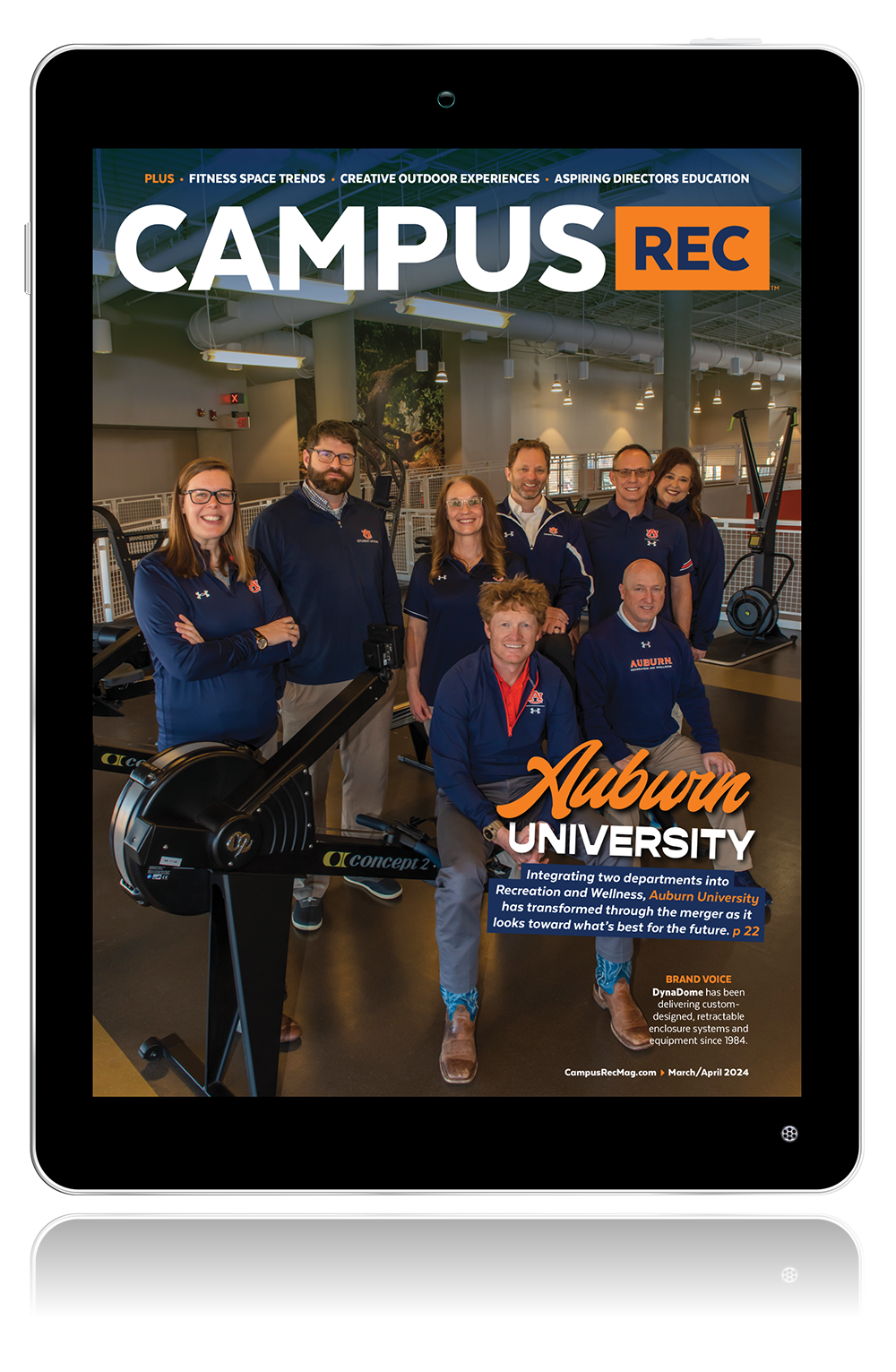
If there’s one thing we can all agree on, it’s that somber feeling that comes over us when we see a meeting request pop up on our calendars. It’s not the number of meetings that make them bad or good, it’s the quality. Take note as we run a crash course on creating meaningful meetings.
Here’s a little snapshot into my life and perspective. For a little over the past two years, I have been leading a consulting company focusing on well-being management, primarily in the university and military recreation settings.
During this time, all of my teams and colleagues have worked remotely across North America, meaning that in-person meetings occurred perhaps only a few times per year. But yet, I’ve felt we’ve been more effective with our priorities than when we were in meetings all the time during our tenure on campuses.
I’ve spent a lot of time and energy into encouraging campus recreation departments and student affairs divisions to become more forward-thinking and progressive on the use of technology and operational effectiveness. Most recently, in addition to consulting, I’ve stepped into the opportunity to be the associate director of wellness and fitness at East Carolina University.
In full transparency, it took me a moment to adjust to the fact that 1) as soon as I was granted access to my email address I had 116 emails awaiting me in my inbox and 2) if you didn’t protect time on your calendar, you were going to get a meeting scheduled on it. So read on below if you would like some quick, hot tips for creating meaningful meetings. Perhaps you might even want to block time on your calendar to read this article.
1. Determine the Purpose
Defining and determining the purpose of your meeting is an initial and crucial step that should be taken before even scheduling. If you cannot define the clear purpose of the meeting then chances are you shouldn’t even be scheduling one.
*Hot Tip: A great way to start is to decide if your meeting is designed to inform, create discussion or brainstorming, or networking/face-time. Many campus recreation departments have staff that work in multiple areas across campus(es). A great way to accomplish face-time and networking is to have a monthly coffee and bagels meeting. Schedule the meeting at a time early enough so it can accommodate all of your team who may work varying work schedules and allow for 30 minutes of networking and fellowship, followed by 10 to 20 minutes of announcements from the director/executive director or a town hall format with a Q&A session.
2. Set Agendas
Agendas are our roadmap to success for leading our meetings. They give us landmarks on our meeting journey from start to finish. Agendas should be created in advance and, ideally, sent out to meeting attendees at least two days prior. This approach should give attendees ample time to prepare to participate and engage in educated conversation.
*Hot Tip: Plan to start and end your meetings at the scheduled time. If one key item is taking more time than the planned discussion, know when to draw the line and save the remaining key items for later. If the meeting starts to go down another path, pump the breaks, put those new topics in the parking lot for a later discussion and stick to your agenda. Finally, if you do not have items for the agenda, simply cancel the meeting; don’t have a meaningless meeting.
3. Open with Activate
A way to get your meeting off to a great start is to open with a stimulating activity. Suzanne McDonald, the assistant director of fitness and wellness at East Carolina University, recommends using Activate. Activate is a series of short brain stimulating exercises intended to get the blood flowing, improve concentration and increase the energy level in a group.
*Hot Tip: McDonald suggests keeping your Activates around two to five minutes. However, depending on the group and space, longer Activates are not out of the question. Activates are also great mid-meeting if the group starts to fade out or seems distracted.
4. Get down to business:
Getting clear communication from your meeting attendees is essential if you want to continue moving forward as a cohesive team tackling your goals and action plan. Identifying recent successes, frustrations and partnership opportunities at the beginning of meetings will give you the tools to continue to move forward effectively.
*Hot Tip: In a remote team I work with, we have a shared doc we complete before each meeting. We share the following with each other: “Since our last meeting, my greatest success has been _____ and my biggest frustration is _______. Coming soon, I really need yall’s help with _____.” We open our meeting with the statements to spark discussion and so we know how to best support each other in the next few days/weeks.
5. Include celebration
Always include celebrations in your meetings. Celebrations should include both small and large milestones (both personally and professionally). A key to strong behavior change, adherence and motivation should include celebrating those small successes we often overlook.
*Hot Tip: There are many celebration style activities out there. Two of my favorites are the Drop for your Bucket activity from Gallup and Elle Woods’ Snap Cup activity from Legally Blonde.
6. Make them memorable
Make your meetings memorable. If your meetings are memorable then most likely so is the content you covered. Similar to Activate, incorporate games, visuals or other fun ways of getting your message across. You can also even change up your meeting locations, too.
*Hot Tip: At ECU campus rec and wellness, we meet monthly as a department. Within the department, we have four units: administration and finance, facilities and communication, leadership and programs, and wellness and fitness. Each area has five to seven minutes to provide updates to the department and must include some sort of visual aid. To make it fun, we have one of our team members act as our resident DJ and each unit walks up to the front of the room with a different song.
7. Increase Automation, Decrease Duplication
This is a key component to creating meaningful meetings. Setting up yourself with automation systems, as we’ve covered in a previous blog, can really declutter your work life. Protect your calendar so you have dedicated time to work, learn, and be in a state of flow.
**Hot Tip: Read The Office of the Future: Technology & Automation for tangible tips.
8. Close with Action Items
Perhaps one of the most important key takeaways from our crash course in creating meaningful meetings is closing with action items. Action items are clear expectations for ourselves and our team following a meeting. Action items break down the milestones that need to be made, in addition to who will be leading these milestones. I recommend ending each meeting with no more than three action items per person. These action items need to be clear, achievable and communicated among the group to encourage accountability. This will also open up partnership opportunities for team members to work together to achieve the goals.
What’s the most memorable meeting you’ve ever attended? Let me know in the comments what made it special.










